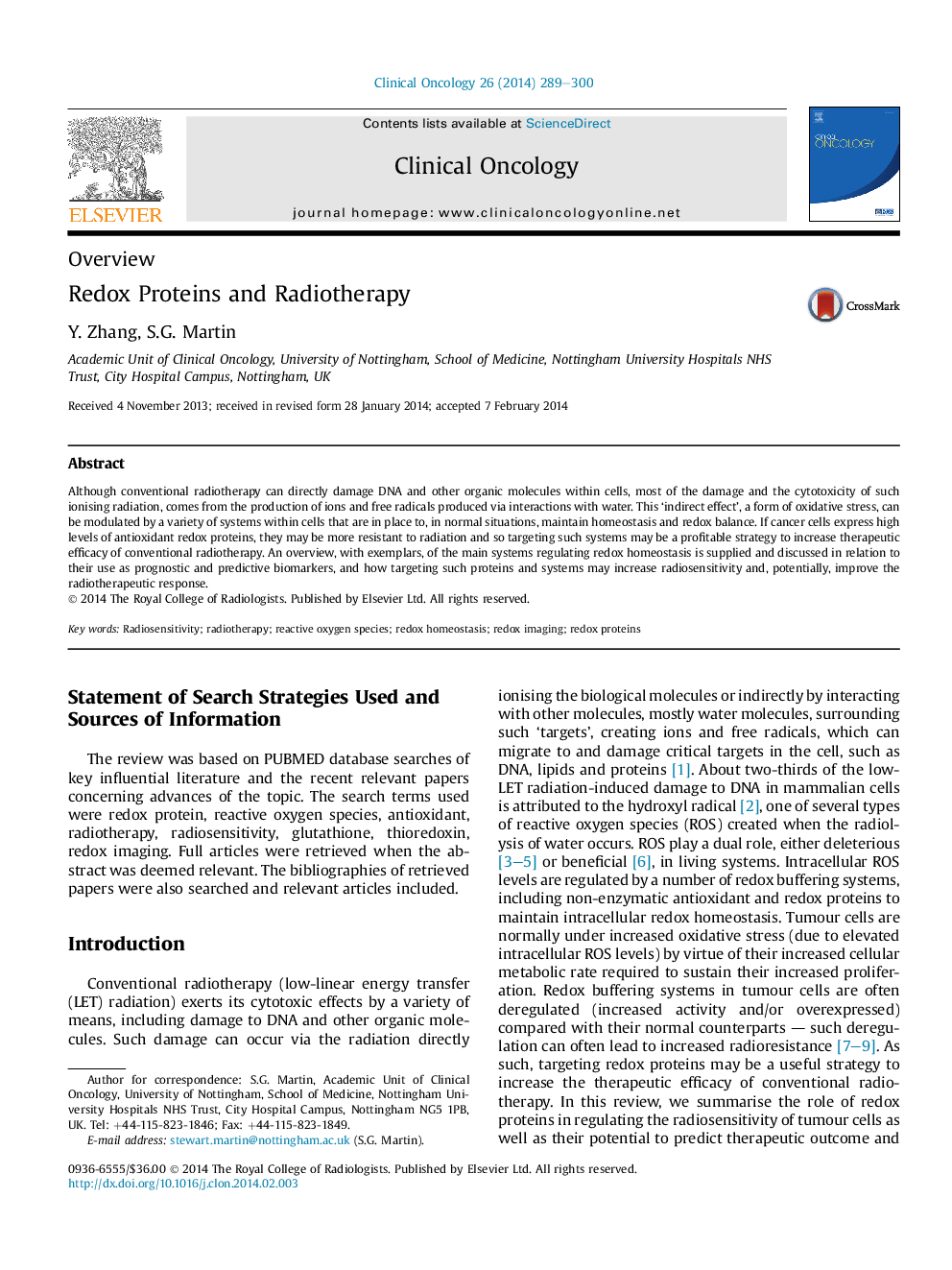| Article ID | Journal | Published Year | Pages | File Type |
|---|---|---|---|---|
| 5698628 | Clinical Oncology | 2014 | 12 Pages |
Abstract
Although conventional radiotherapy can directly damage DNA and other organic molecules within cells, most of the damage and the cytotoxicity of such ionising radiation, comes from the production of ions and free radicals produced via interactions with water. This 'indirect effect', a form of oxidative stress, can be modulated by a variety of systems within cells that are in place to, in normal situations, maintain homeostasis and redox balance. If cancer cells express high levels of antioxidant redox proteins, they may be more resistant to radiation and so targeting such systems may be a profitable strategy to increase therapeutic efficacy of conventional radiotherapy. An overview, with exemplars, of the main systems regulating redox homeostasis is supplied and discussed in relation to their use as prognostic and predictive biomarkers, and how targeting such proteins and systems may increase radiosensitivity and, potentially, improve the radiotherapeutic response.
Keywords
Related Topics
Health Sciences
Medicine and Dentistry
Oncology
Authors
Y. Zhang, S.G. Martin,
